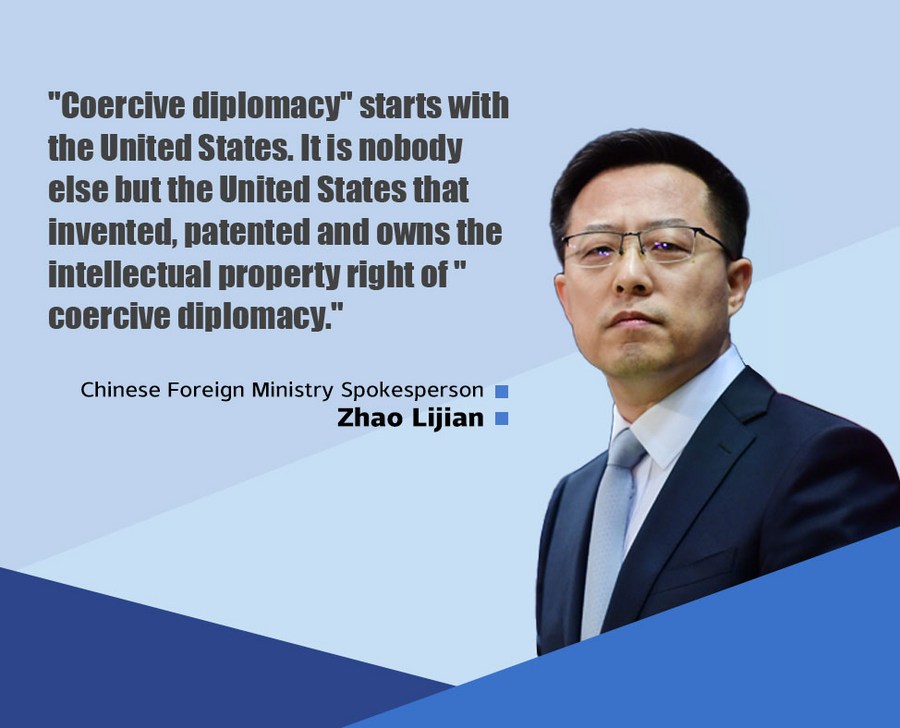

A Chinese Foreign Ministry spokesperson lashed out at the United States on Monday, saying that the United States has been engaging in "coercion diplomacy" and that China is ready to work with all countries upholding justice to oppose all forms of coercive acts around the world.
Spokesperson Zhao Lijian made the remarks at a daily press briefing in response to U.S. Secretary of State Antony Blinken's recent comments accusing China of "coercion diplomacy."
It is the United States that engages in "coercion diplomacy," Zhao said, adding that China has never resorted to any act of coercion and is firmly opposed to any other country doing so.
When China's national sovereignty and dignity are coerced or abused, China takes reasonable and lawful countermeasures to defend its legitimate rights and interests and uphold international fairness and justice, the spokesperson said.
Calling the United States the "culprit" of "coercion diplomacy," Zhao said the invention rights, patent rights and intellectual property rights of "coercion diplomacy" belong only to the United States.
To further expose U.S. actions in pursuit of "coercion diplomacy," Zhao cited practices such as unscrupulously suppressing China's Huawei and other foreign companies, and forcing countries to pick sides in the Russia-Ukraine conflict, while frequently threatening to use unilateral sanctions and long-arm jurisdiction. What's more, he added, when China and the Solomon Islands inked a security cooperation deal based on mutual respect, equality and mutual benefit, the United States immediately pressured the South Pacific island countries to impede normal cooperation with China.
Zhao urged the United States to end "coercion diplomacy," cease interference in the internal affairs of other countries, and refrain from pressurizing countries to choose sides, misusing unilateral sanctions, and oppressing the high-tech firms of other countries.